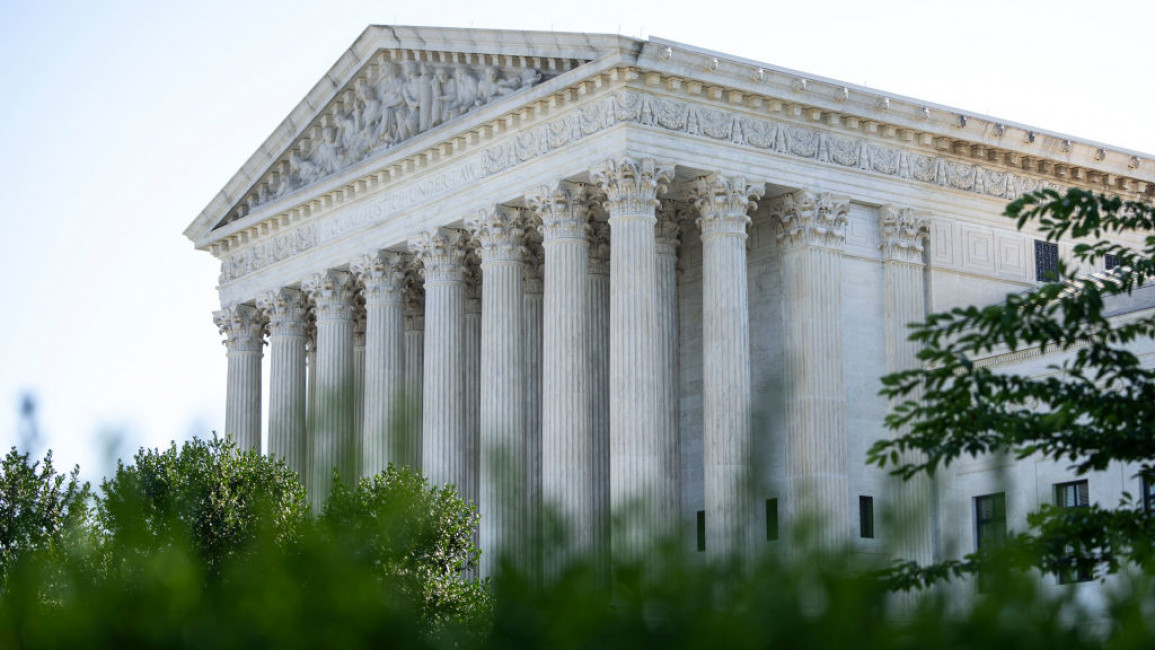Democrats seek alternatives to conservative US Supreme Court
With the US Supreme Court firmly in the hands of a conservative majority that has spent the last month issuing rulings that could change the face of the United States – from reversing federal protection, abortion access to relaxing gun laws in New York, removing federal environmental protection, and removing land from Native Americans to state control – many are looking for legal solutions to protect civil rights.
Expanding the Supreme Court, long seen as taboo, but publicly discussed in the weeks following the death of Justice Ruth Bader Ginsburg, is now being seriously advocated by a growing number of Democrats.
"In just a matter of days, this Supreme Court has dealt serious blows to: Reproductive rights. Gun safety. Privacy. And now to the planet. All because Mitch McConnell and Donald Trump stacked the Court," tweeted California Congressman Adam Schiff on 30 June. "Time to unstack it — expand the Court."
Schiff, considered a mainstream Democrat, has joined left-wing members of his party in seriously considering changing the makeup of the Supreme Court, something that might have seemed inconceivable just a few months ago.
Jon Cooper, who previously worked as a campaign chair for former President Barack Obama, brought up a point that is increasingly gaining ground.
"Over 150 years ago, Congress decided there should be 9 Supreme Court justices because there were 9 circuit courts. Today there are 13 circuit courts, so it makes sense for Congress to expand the Supreme Court to 13 justices," he tweeted on 28 June.
He added, with a raised hand, "Who agrees?"
Last year, Senator Ed Markey of Massachusetts co-sponsored the Judiciary Act of 2021, along with New York Representatives Jerrold Nadler and Mondaire Jones and Representative Hank Johnson of Georgia, who accused Republicans of stealing seats on the Supreme Court, a plan that is now seeing renewed attention.
At the time, it did not gain traction.
Another suggestion has been instating term limits for justices, which would be a major departure to the long-time tradition of lifetime appointments, but like the idea of court expansion, possibly also in line with the changing times, given the increased life expectancy since the foundation of the US government.
Progressive lawmakers, including Representatives Ro Khanna of California, Ilhan Omar of Minnesota and Alexandria Ocasio-Cortez of New York are urging for term limits as well as a code of ethics for the justices.
The three most recently appointed justices misrepresented their intentions during their confirmation hearings. Another one, Clarence Thomas, is married to a conservative activist who was communicating with White House staffers during the January 6 insurrection last year.
On Tuesday, Khanna tweeted, "Supreme Court Justices are the only federal judges who don’t have to abide by the Code of Conduct for U.S. Judges. We need term limits and a code of ethics for justices to prevent conflicts of interest."
Any moves for change, however, cannot happen without an end to the filibuster, the requirement in the senate of three-fifths (or 60 votes) majority vote for most legislation. Only once this is changed could the door open for Supreme Court reform.
This week's mass shooting at the Fourth of July parade in Highland Park, Illinois has brought about a renewed sense of urgency for Supreme Court reform.
"President Biden says he wishes we had a stronger law passed in the wake of Uvalde yet has not called for abolishing the filibuster or expanding the court. Comprehensive gun laws are not possible without both," tweeted David Hogg, a survivor of the 2018 school shooting in Parkland, Florida and a co-founder of March for Our Lives, a gun safety advocacy group.
"Just so you know basically any comprehensive gun law congress passes from now until about 2060 will be ruled unconstitutional by the Supreme Court," he continued. "We need to unpack the court Trump packed with justices who lied under oath."
Even with this apparent renewed sense of urgency among much of the Democratic party, there appears to be reticence in the top leadership.
President Joe Biden has continued to brush aside the idea of expanding the court, perhaps already feeling held back by the two conservative-leaning Democrats in the Senate, Kyrsten Sinema of Arizona and Joe Machin of West Virginia, who have repeatedly said they do not support ending the filibuster. Meanwhile, House Speaker Nancy Pelosi has indicated that she would not support expanding the Supreme Court.
It is unclear how this will affect the 2024 midterm elections. However, with all of these options clearly laid out for the public to consider, it would appear to be a good time to give people a reason to turn up to the polls.



